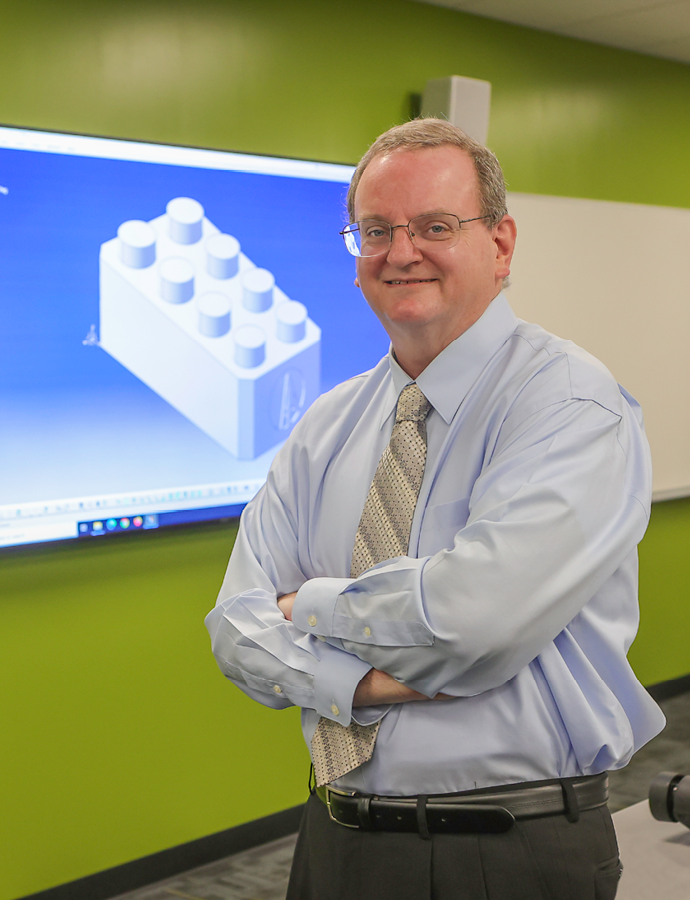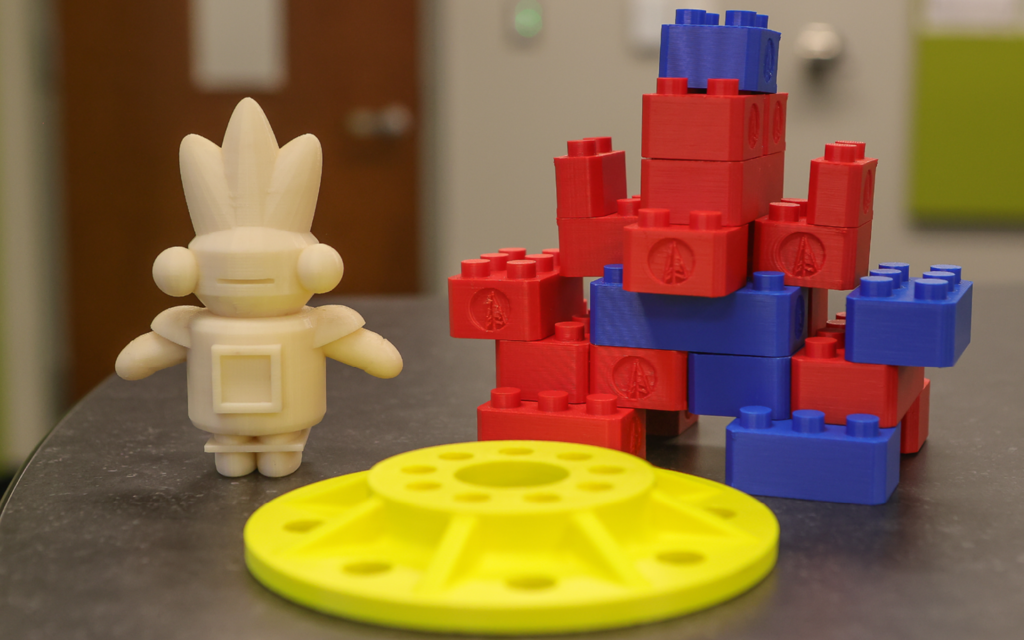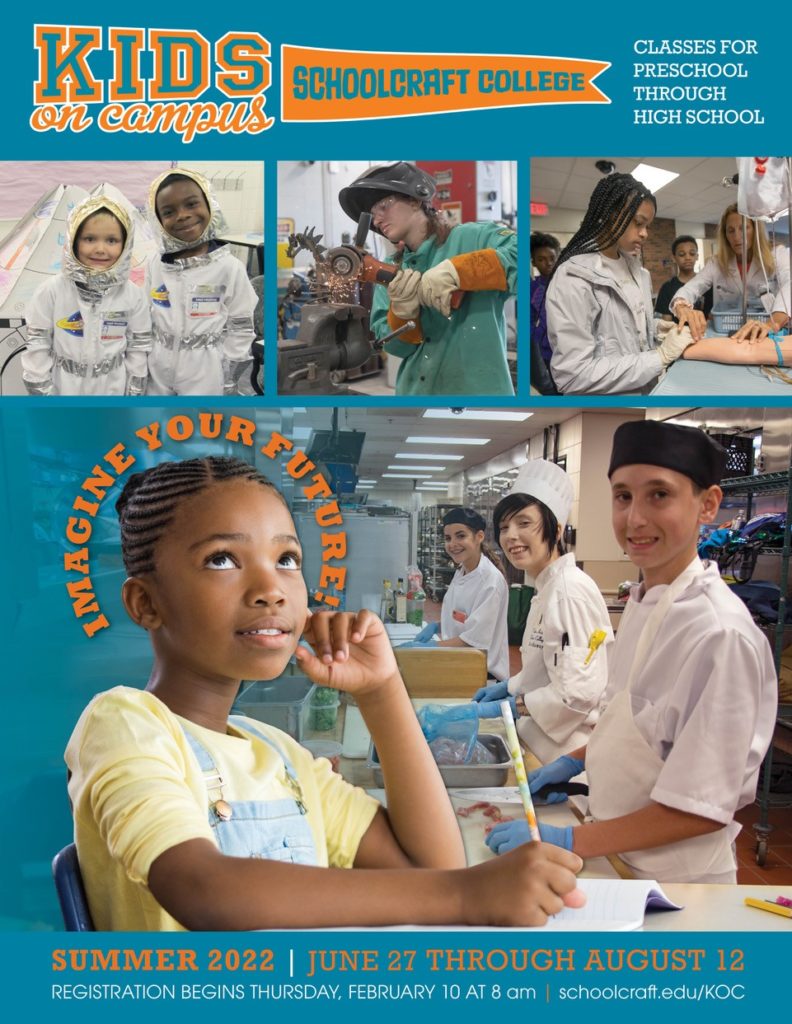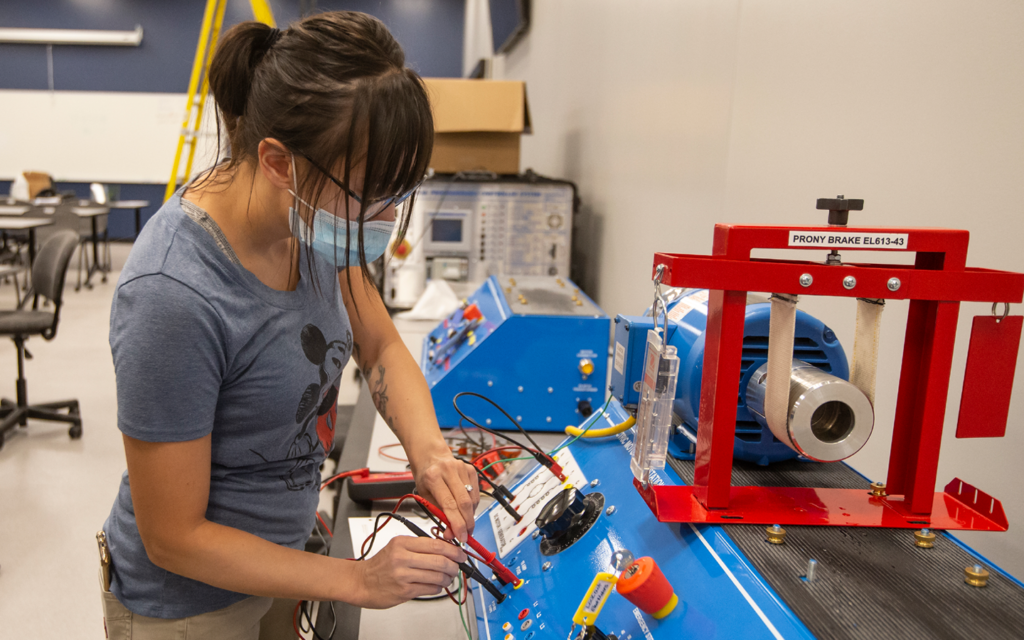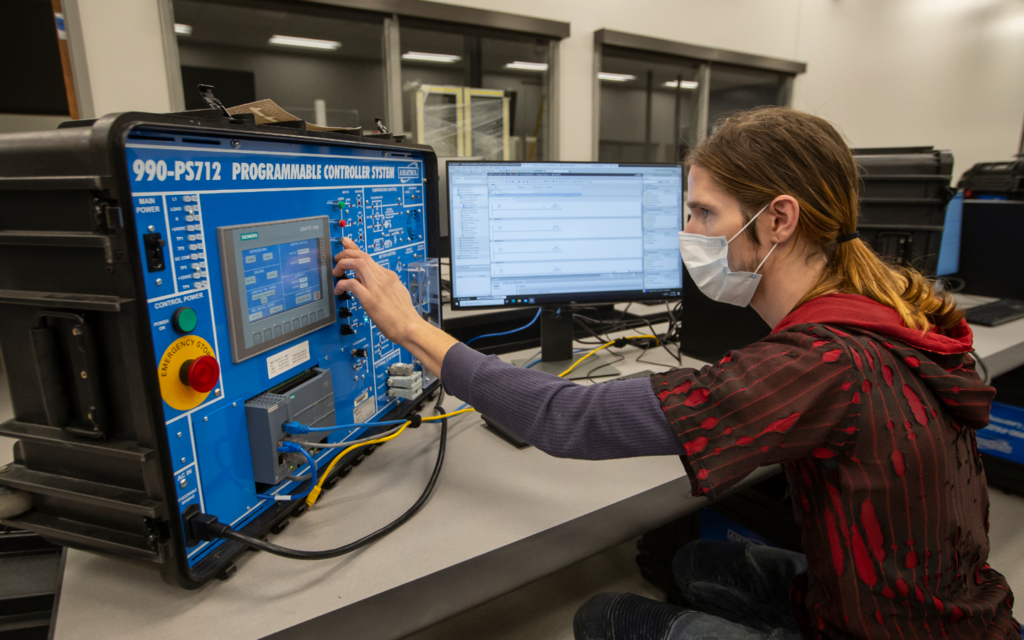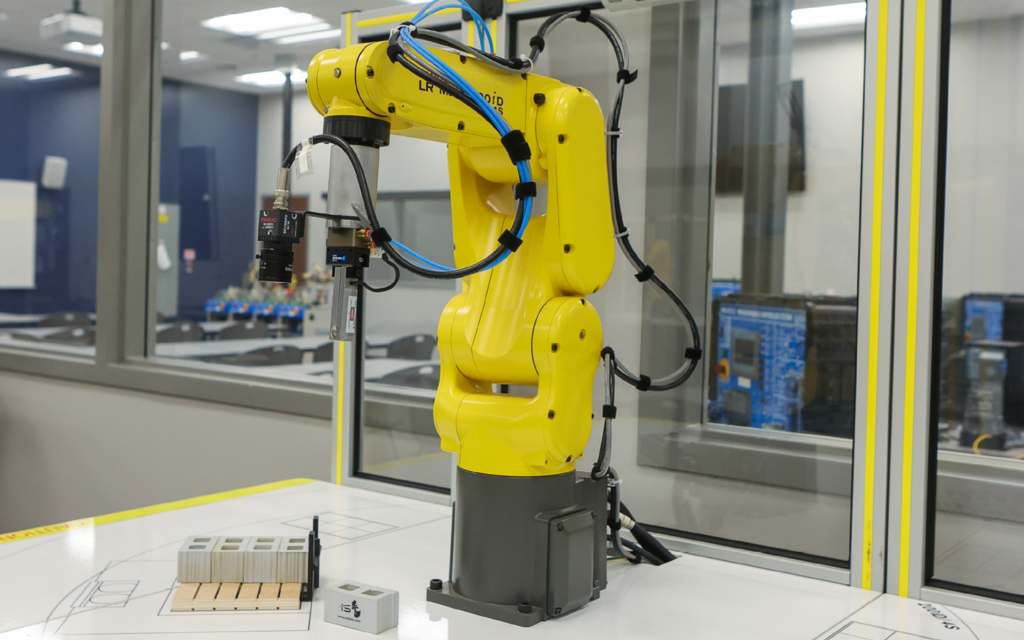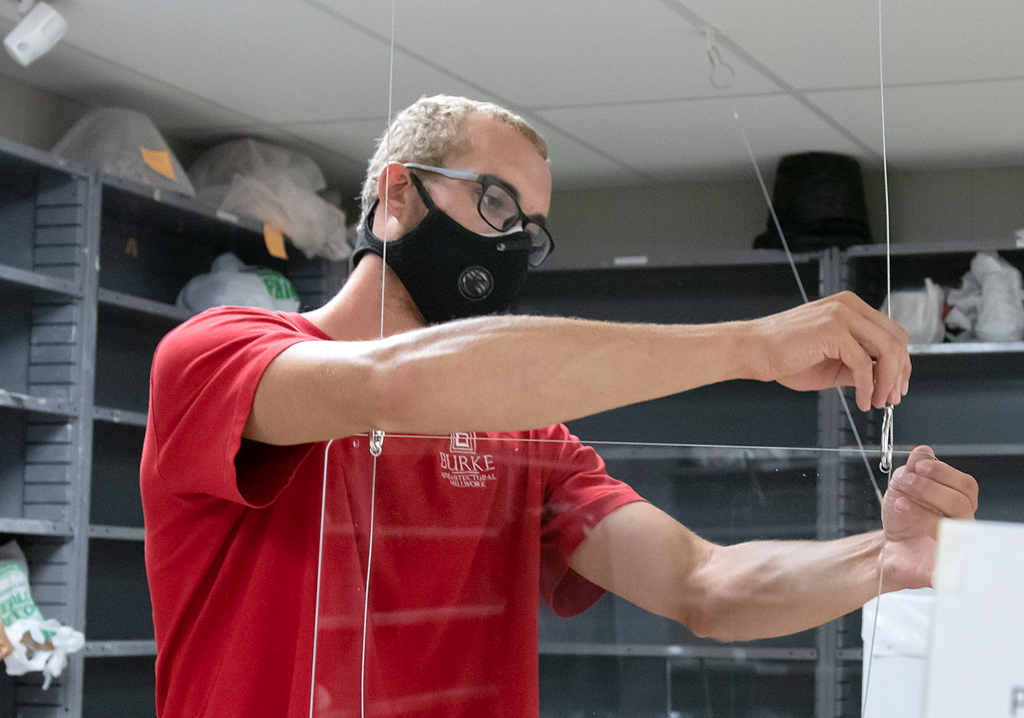Today for “Faculty Spotlight” we’re sitting down with Dennis Fohey, full-time Materials Science and Robotics Instructor (overseeing both Metallurgy and Plastics Technology) in the Metallurgy and Materials Science department at Schoolcraft College.
Schoolcraft College: Hello, Professor Fohey, and thanks for joining us today. To start, could you please share a bit about your background and career in the automotive industry? And then please tell us about your teaching career at Schoolcraft College.
Professor Fohey: Like the students I meet here at Schoolcraft College, I started out at a community college trying to figure out what I wanted to do with my life. I was working toward an Engineering Technology degree when I was offered a co-op position at GM working in the test lab. I spent the next 11 years working in various lab roles testing the strength and fatigue performance of automotive components and systems – I was paid to break stuff. Great job and I learned lots. I continued my career supporting the development of structural components (frames, cradles, control arms) for cars and trucks.
The opportunities I was given through the community college changed my life, and I always hoped to “give back.” When I was offered a position at Schoolcraft, I jumped at the chance. I started as a part-time instructor and eventually joined full time.
Schoolcraft College: How unique is Schoolcraft College in terms of offering a program in Metallurgy and Materials Science? And could you please give us a high-level description of the program, what students learn and some of the equipment we have in our labs?
Professor Fohey: Schoolcraft College is currently the only community college to offer a two-year degree for Metallurgy. Other schools offer a few courses without a lab or hands-on content.
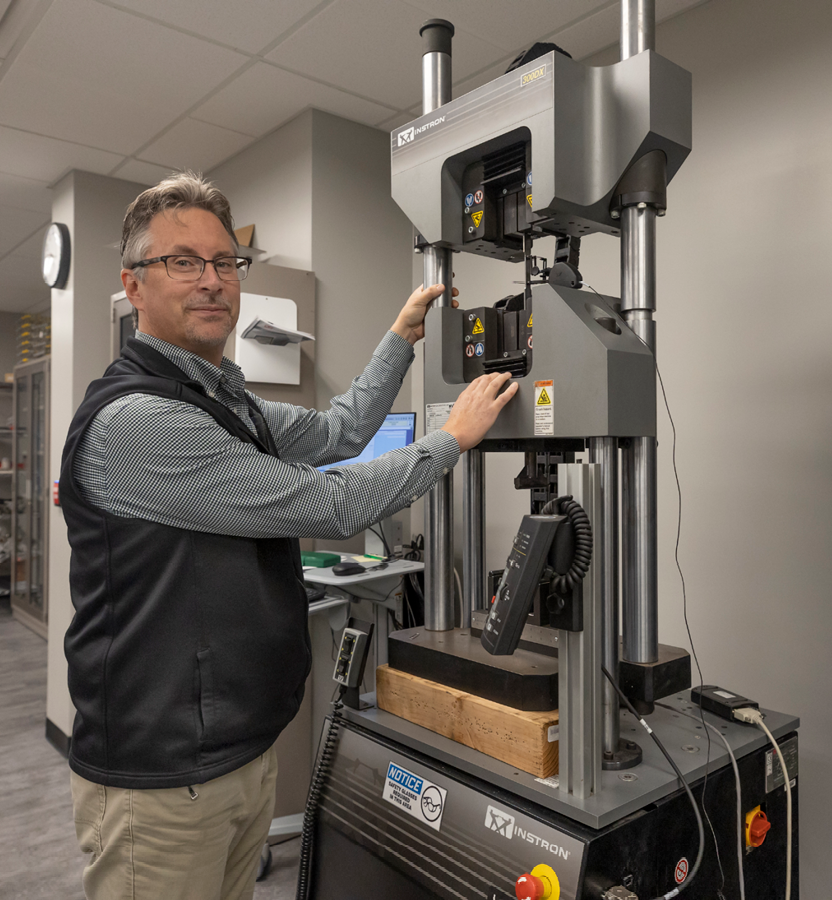
Our program provides a basic understanding of commonly used industrial materials. We cover the methods used to strengthen material with alloying, heat treatment and cold working. We use different methods of manufacturing, including casting, forging, and stamping, as well as testing methods for evaluating materials for strength, toughness and microstructure.
We complement our coursework with hands-on lab activities to reinforce students’ understanding. Lab work includes casting, forging, heat treatment, tensile hardness and impact testing.
Schoolcraft College: Something that you and your colleagues at the Manufacturing & Engineering Center excel at is bringing a wealth of real-world experience to the classroom and sharing that knowledge and imparting that passion to your students. What have been some of the success stories during your teaching career?
Professor Fohey: It is great to see our students succeed. Our Manufacturing & Engineering Center (MEC) location is close to many industries that offer well-paying career opportunities. Over the years I’ve seen many of our students go out into the working world and prosper.
Schoolcraft College: Automotive engineers face a daunting task of identifying and using materials that are light so they contribute to fuel/energy efficiency, yet are strong enough to withstand durability and crash-testing regimens. Can you please share a bit of insight on this process from your career?
Professor Fohey: The transportation industries are always pushing to find lighter and stronger materials to be used in their products. The steel industry, for example, has created many new grades of steel that are significantly stronger than their predecessors. These new materials require a different approach to the entire product development cycle, from the initial design concept, manufacturing, welding and even repair.
Throughout my career, I’ve seen the development cycle constantly changing with the relentless push to be more efficient (lighter). Lightweighting is the process of removing weight from a component or assembly while maintaining the required properties, often by using new lightweight materials. It is used in the auto industry to build lighter cars and trucks as a way to achieve better fuel efficiency and handling.
Improved safety requirements and recyclability also have changed development. The materials we use always play a significant role. Those who understand and learn about new materials and methods are valued by industry.
Schoolcraft College: What credentials are offered and what are some of the potential career paths from Metallurgy and Materials Science? Can students get a certificate and immediately be employed, or do they need to transfer for further education?
Professor Fohey: The program offers three Metallurgy and Materials Science credentials. You can start by earning the certificate, and if you are interested you can build on to earn an Associate degree, increasing your skills and pay. We also offer the Post Associate Certificate for those in the field.
- Metallurgy: Applied Physical Certificate: This program provides those currently employed in the field with an opportunity to develop or reinforce skills needed to advance in the laboratory or supporting organizations. 31 credits
- Metallurgy and Materials Science Associate of Applied Science (AAS) degree: This is the only two-year program of its kind in the state of Michigan. It gives students broad knowledge of materials testing, manufacturing, and research and development needed for positions ranging from laboratory technician to plant manager. 62-67 credits
- Materials Science Post-Associate Certificate: This is designed for working technical professionals who need specific training in metallurgical technologies or laboratory practices. 16 credits
There are many local industries looking for support in these technical fields. I’ve seen our students take on roles in lab testing, material purchasing, technical sales, quality control and manufacturing technical support.
Metallurgy and Materials Science supports many industries and careers. Industries include automotive, aerospace, appliance, building construction, energy production, and consumer products.
- Positions include Technician, Laboratory Technician, Process Engineer, Metallurgist/Welder, Materials Scientist, Plant Manager, Biomaterials Researcher and Industrial Sales.
- With a Metallurgy Applied Physical Certificate – Metal and plastic machine workers set up and operate equipment that cuts, shapes and forms metal and plastic materials or pieces. Earnings: $38,040 per year/$18.29 per hour*
- With a Metallurgy and Materials Science AAS – Mechanical engineering technologists and technicians help mechanical engineers design, develop, test, and manufacture machines and other devices. Earnings: $60,460 per year/$29.07 per hour*
* (2021 U.S. Bureau of Labor Statistics)
Schoolcraft College: Thank you, Professor Fohey, for your time. Is there anything else you’d like to add?
Professor Fohey: Stop by Schoolcraft College’s state-of-the-art facility, the MEC. We have an innovative center, advanced equipment and great staff to help support the growth of our students.

